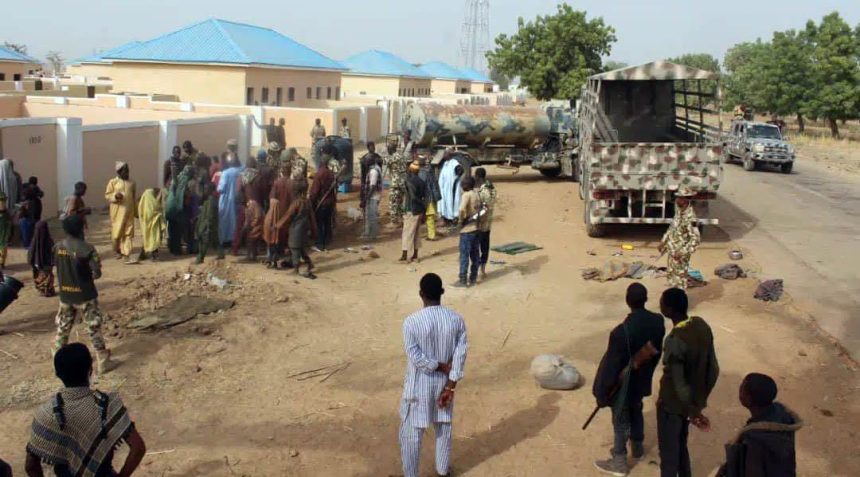The corpses of 37 villagers, victims of a brutal attack by Boko Haram insurgents, have been evacuated from Mafa, a town in Tarmuwa Local Government Area of Yobe State.
Reports indicate that the remains were transported to Babbangida General Hospital in preparation for a mass burial scheduled for 10 a.m.
Yobe State Deputy Governor Hon. Idi Barde Gubana will lead a delegation of top government officials at the burial, which will take place at the Babbangida Emir’s palace, the headquarters of Tarmuwa LG.
Community sources have reported a much higher death toll, claiming that at least 87 people were killed during the attack.
According to local accounts, many victims were unable to be recovered due to their remains being scattered in the bush, with military efforts proving insufficient in locating them. Of the 37 corpses now at the hospital, the more decomposed bodies will be buried at the attack site.
The violence erupted when Boko Haram militants struck Mafa around 4 p.m. as residents returned from their farms, targeting farmers and setting homes and shops ablaze.
This recent assault follows an earlier attack last month that killed two individuals and displaced 475 households, affecting over 2,390 people across four communities within Mafa ward.
Sources suggest that the attack may have been a retaliatory strike by the insurgents against villagers who reportedly provided intelligence to the military, leading to the successful elimination of several militants in July.
Yobe State Police Command spokesman Dungus Abdulkarim confirmed the attack, stating that details remain unclear due to network failures in the area.
He reported that the insurgents arrived on over 50 motorcycles, burning down shops and homes and leaving behind fliers with Arabic inscriptions.
Brigadier-General Dahiru Abdulsalam (Rtd), the Special Adviser to the Yobe State Governor on Security Matters, also verified the attack, noting that military personnel have been deployed to the area and that efforts to restore normalcy are underway.
Mafa village is located near Shekau village, the hometown of the late Boko Haram leader, Abubakar Shekau, highlighting the ongoing threat posed by the insurgency in the region.











